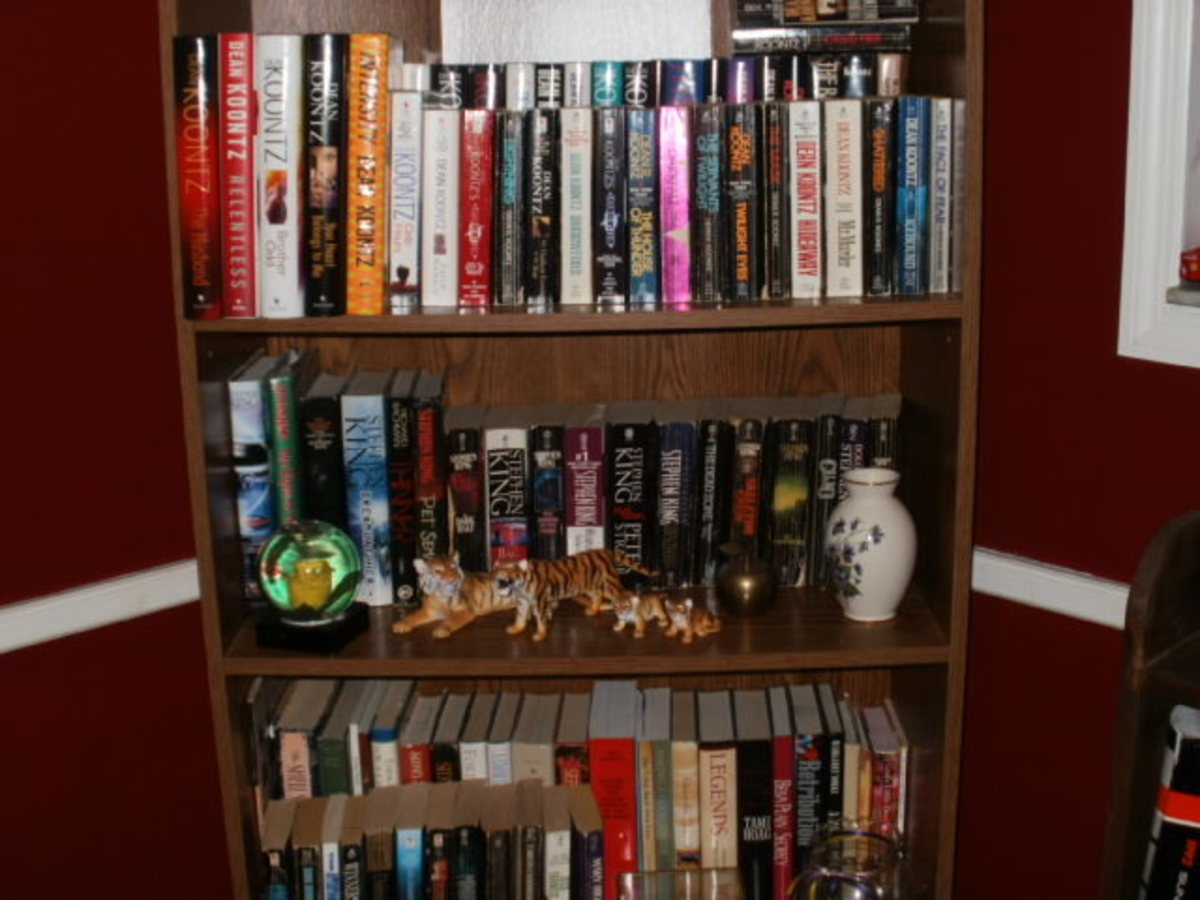- HubPages»
- Books, Literature, and Writing»
- Commercial & Creative Writing»
- Word Usage & Grammar
The Dirty Little Secret about Punctuation Usage

Have you ever been castigated over an aspect of punctuation usage? Have you been made to feel inferior because you’ve been told that the way you’ve done something is incorrect? Have you ever wanted to punch someone in the teeth (proverbially, of course. There’s no encouragement of actually harming someone here.) because they’ve acted like what’s been referred to as a “Punctuation Nazi”?
Then this blog post’s for you.

There’s a prevailing thought that, like grammar rules, punctuation rules are absolute. Set in stone. Shall not be changed from this way, that way, another way.
Ever.
Here’s a little secret: While certain aspects might be absolute, other aspects aren’t.
“OMG!” you might exclaim. “But what about my high school English teacher who marked me off every time I didn’t use a comma before a conjunction, even if the clause that followed wasn’t independent?”
Or you might sputter, “What about my college writing professor, who insisted the Oxford comma wasn’t necessary when it undoubtedly saves a lot of potential confusion?”
Sit back for a moment and think about all the different writing instruction you’ve received over the years. Then type in “writing style guides” into Google and see the number you get (52,500 in case you want to know. A search for “punctuation rules” garners 102,000.) Amazon offers hundreds of pages of books relating to both writing style guides and punctuation rules.
Then ask yourself why you’ve received conflicting instructions over the years.
If there was only one right way to use punctuation, a way that never, ever, not for any reason changed, then why are there so many options?
The fact of the matter is that everyone has their own particular way of doing things. The Chicago Manual of Style and APA seem to be popular choices to follow. Strunk & White’s Elements of Style is touted as the go-to recommendation. If you’re an academic, you might use MHRA or MLA style guides.
The list of options is seemingly endless, as is the number of people who will insist that you’re incorrect about your usage concerning [insert whatever particular punctuation choices you’ve made that have caused “You’re wrong, you’re wrong, you’re WRONG!” to rain down on your head hard enough to give you a black eye.]

6 Tips to help you Navigate the Shark Tank of Punctuation Usage
1. There will always be haters, know-it-alls, and trolls. Accept this and move on.
2. Don’t argue with anyone who finds it necessary to loudly and in perpetuity castigate you about a punctuation choice. Not only is it self-defeating, it’s a huge waste of time that would be better spent on, oh, I don’t know, writing?
3. If you’ve been told something is incorrect and you’re unsure about whether it actually is or not, investigate. You’ll probably find the usage is acceptable a number of different ways, yours included. If it’s actually usage that isn’t correct, you’ve learned something, and you can incorporate it into your knowledge bank.
4. If you’re working with a company, or an editor who works for a specific company, or taking college classes always, always, always follow their punctuation guidelines. There’s no reason to lose your job or get a bad grade over a punctuation choice.
5. Be consistent. No matter which punctuation “rules” you choose to follow, always be consistent.
6. Always remember that no punctuation, mistake or not, is worth losing sleep over. The world will not end. There is no jail for perceived offenders. You will not be banished from the writers’ island. And even if you were, would you want to be stuck on an island with writers who can’t see beyond black and white, anyway?

Good, General "Rules" of Punctuation Thumb to Follow:
A good, general rule of punctuation thumb (as put forth to me by one of my college writing professors) is as follows:
1. Participial phrases are usually marked by a comma.
2. Speech tags are usually preceded or followed by commas, depending on their placement.
3. Commas and periods sit inside quotation marks.
4. Colons and semicolons go outside quotation marks.
5. Question marks and exclamation points can go either inside or outside quotation marks, depending on if they belong to the quote itself or the overall sentence.
But as even she noted, style guides don’t necessarily agree and nothing is set in stone. It gets even more convoluted when you take into consideration the editing rules for U.S. and U.K. English, which will vary as well.
So, regardless of which style guide you choose to follow, write your little hearts out. Tell the stories you have to tell. And amuse yourself greatly.
The end.






